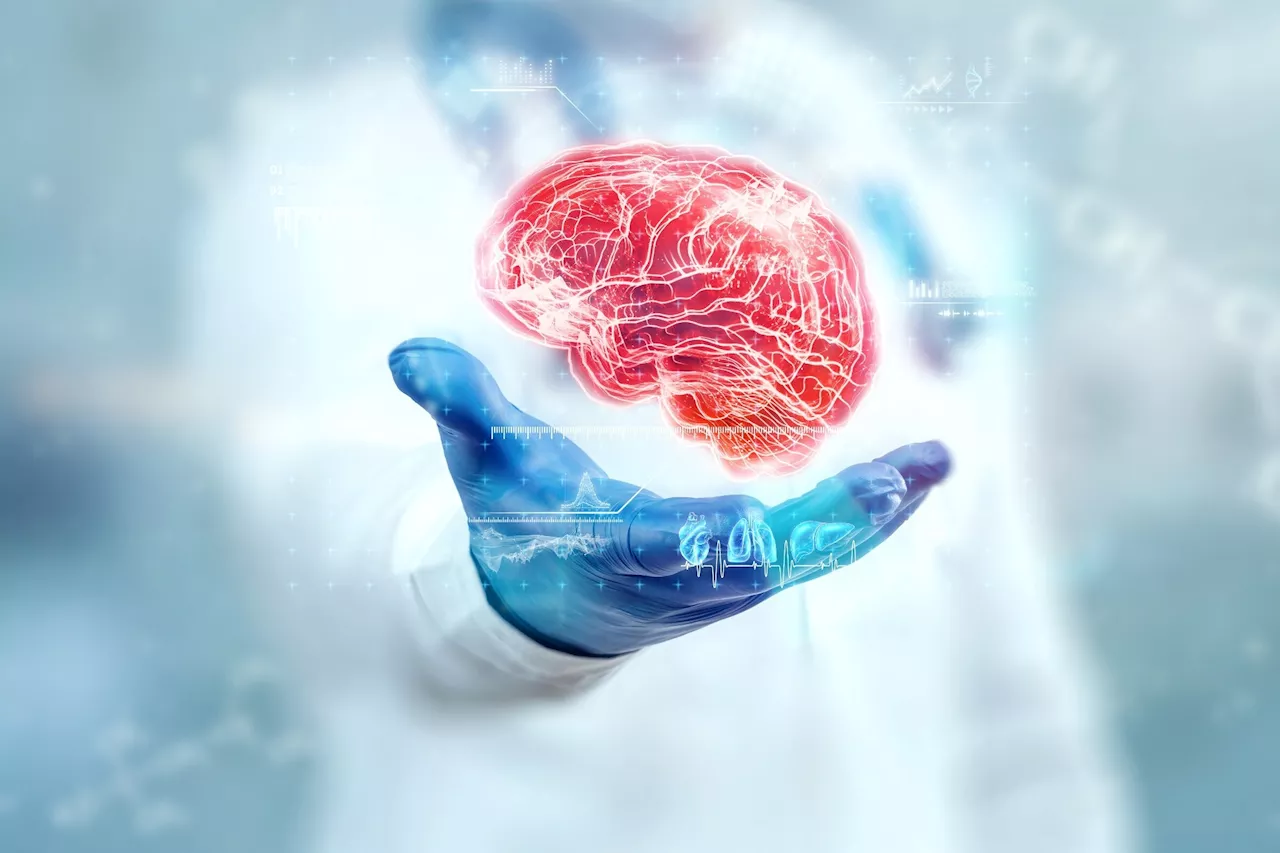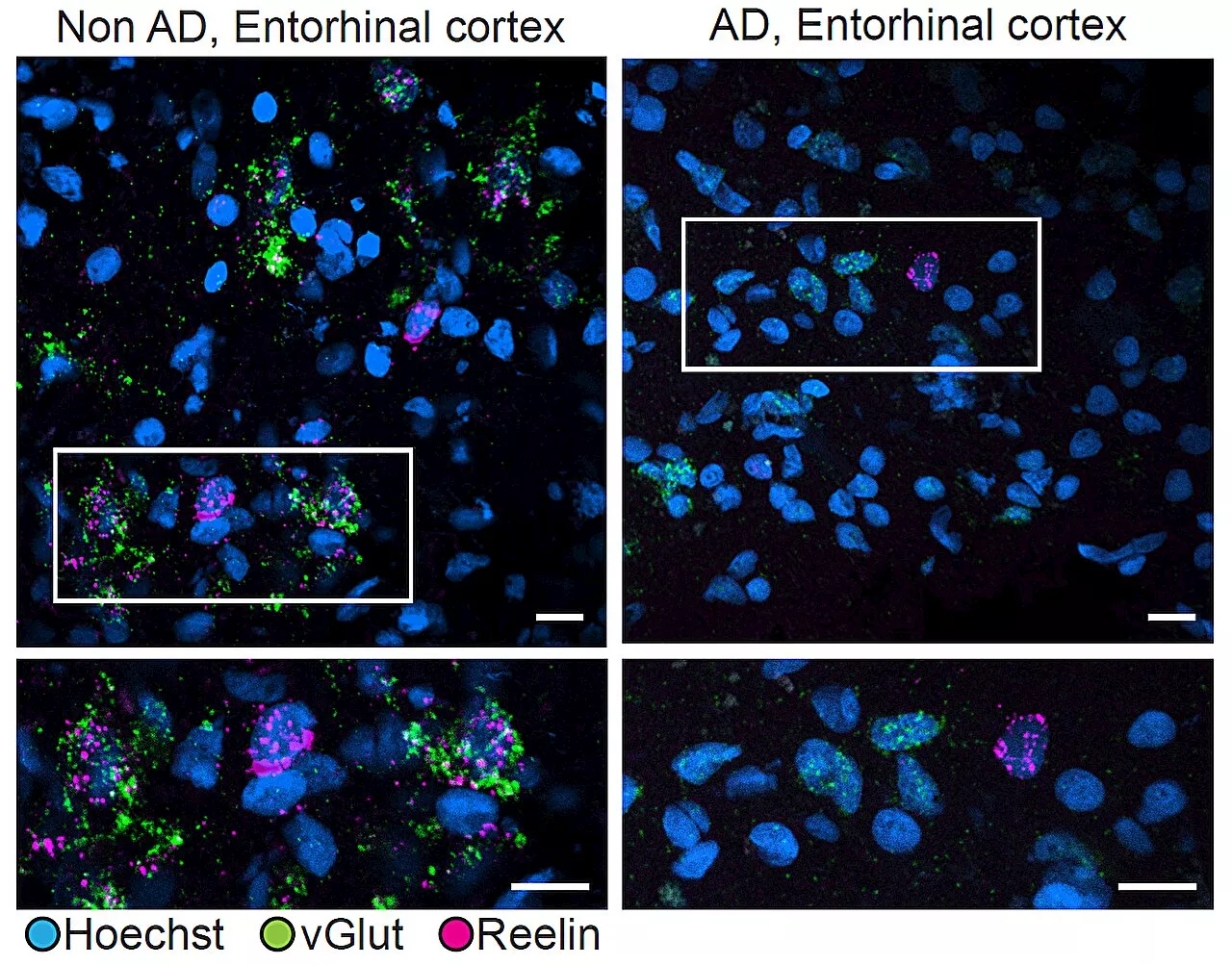Neurotransmitter levels in the brain can indicate brain health and neurodegenerative diseases like Alzheimer's.
American Chemical SocietyJul 31 2024 Neurotransmitter levels in the brain can indicate brain health and neurodegenerative diseases like Alzheimer's. However, the protective blood-brain barrier makes delivering fluorescent sensors that can detect these small molecules to the brain difficult. Now, researchers in ACS Central Science demonstrate a way of packaging these sensors for easy passage across the BBB in mice, allowing for improved brain imaging.
It is common for neurotransmitter levels to decrease with age, but low levels of the neurotransmitter adenosine triphosphate can be an indication of Alzheimer's disease. To measure the location and amount of ATP in the brain, researchers have developed fluorescent sensors from pieces of DNA called aptamers that light up when they bind to a target molecule.
The BBB laboratory model consisted of a layer of endothelial cells on top of a solution containing brain cells. The researchers' sensor-loaded exosomes were nearly four times more efficient than conventional sensor delivery systems at passing through the endothelial barrier and releasing the fluorescent sensor into the brain cells. This was confirmed by measuring the observed level of ATP-binding-induced fluorescence.
Related StoriesIn mouse models of Alzheimer's disease, the exosome-delivered sensors identified the location and concentration of ATP in different regions of the brain. Specifically, they observed low levels of ATP in the hippocampus, cortex and subiculum regions of the brain, which are indicative of the disease.
Adenosine Adenosine Triphosphate Alzheimer's Disease Aptamers Blood Brain DNA Exosome Exosomes Fluorescence Neurodegenerative Diseases Research Small Molecules Technology
United Kingdom Latest News, United Kingdom Headlines
Similar News:You can also read news stories similar to this one that we have collected from other news sources.
 Brain neurotransmitter receptor antagonist found to prevent opioid addiction in miceNew research led by UCLA Health has found a drug that treats insomnia works to prevent the addictive effects of the morphine opioids in mice while still providing effective pain relief.
Brain neurotransmitter receptor antagonist found to prevent opioid addiction in miceNew research led by UCLA Health has found a drug that treats insomnia works to prevent the addictive effects of the morphine opioids in mice while still providing effective pain relief.
Read more »
 Seeing inside Alzheimer's disease brain using cryo-electron tomographyScientists investigating Alzheimer's disease have determined the structure of molecules within a human brain for the very first time.
Seeing inside Alzheimer's disease brain using cryo-electron tomographyScientists investigating Alzheimer's disease have determined the structure of molecules within a human brain for the very first time.
Read more »
 New brain atlas reveals hidden cell vulnerabilities in Alzheimer'sResearchers created a detailed transcriptomic atlas of six brain regions, revealing cell-type-specific and region-specific vulnerabilities in Alzheimer's disease and highlighting astrocyte genes linked to cognitive resilience.
New brain atlas reveals hidden cell vulnerabilities in Alzheimer'sResearchers created a detailed transcriptomic atlas of six brain regions, revealing cell-type-specific and region-specific vulnerabilities in Alzheimer's disease and highlighting astrocyte genes linked to cognitive resilience.
Read more »
 Study across multiple brain regions discerns Alzheimer's vulnerability and resilience factorsAn MIT study published in Nature provides new evidence for how specific cells and circuits become vulnerable in Alzheimer's disease, and hones in on other factors that may help some people show resilience to cognitive decline, even amid clear signs of disease pathology.
Study across multiple brain regions discerns Alzheimer's vulnerability and resilience factorsAn MIT study published in Nature provides new evidence for how specific cells and circuits become vulnerable in Alzheimer's disease, and hones in on other factors that may help some people show resilience to cognitive decline, even amid clear signs of disease pathology.
Read more »
 Unprecedented brain cell mapping sheds light on Alzheimer'sLess than a decade ago, when Dr. Hansruedi Mathys launched an ambitious project to create an annotated library of all the gene readouts stored within 100 individual brain cells, the task felt daunting.
Unprecedented brain cell mapping sheds light on Alzheimer'sLess than a decade ago, when Dr. Hansruedi Mathys launched an ambitious project to create an annotated library of all the gene readouts stored within 100 individual brain cells, the task felt daunting.
Read more »
 Comprehensive analysis of Alzheimer’s brain tissue identifies novel biomarkersFrom studying the human genome, to analyzing the way proteins are encoded, or monitoring RNA expression, researchers are rapidly gaining a far richer understanding of the complex genetic and cellular mechanisms that underpin dementia.
Comprehensive analysis of Alzheimer’s brain tissue identifies novel biomarkersFrom studying the human genome, to analyzing the way proteins are encoded, or monitoring RNA expression, researchers are rapidly gaining a far richer understanding of the complex genetic and cellular mechanisms that underpin dementia.
Read more »
